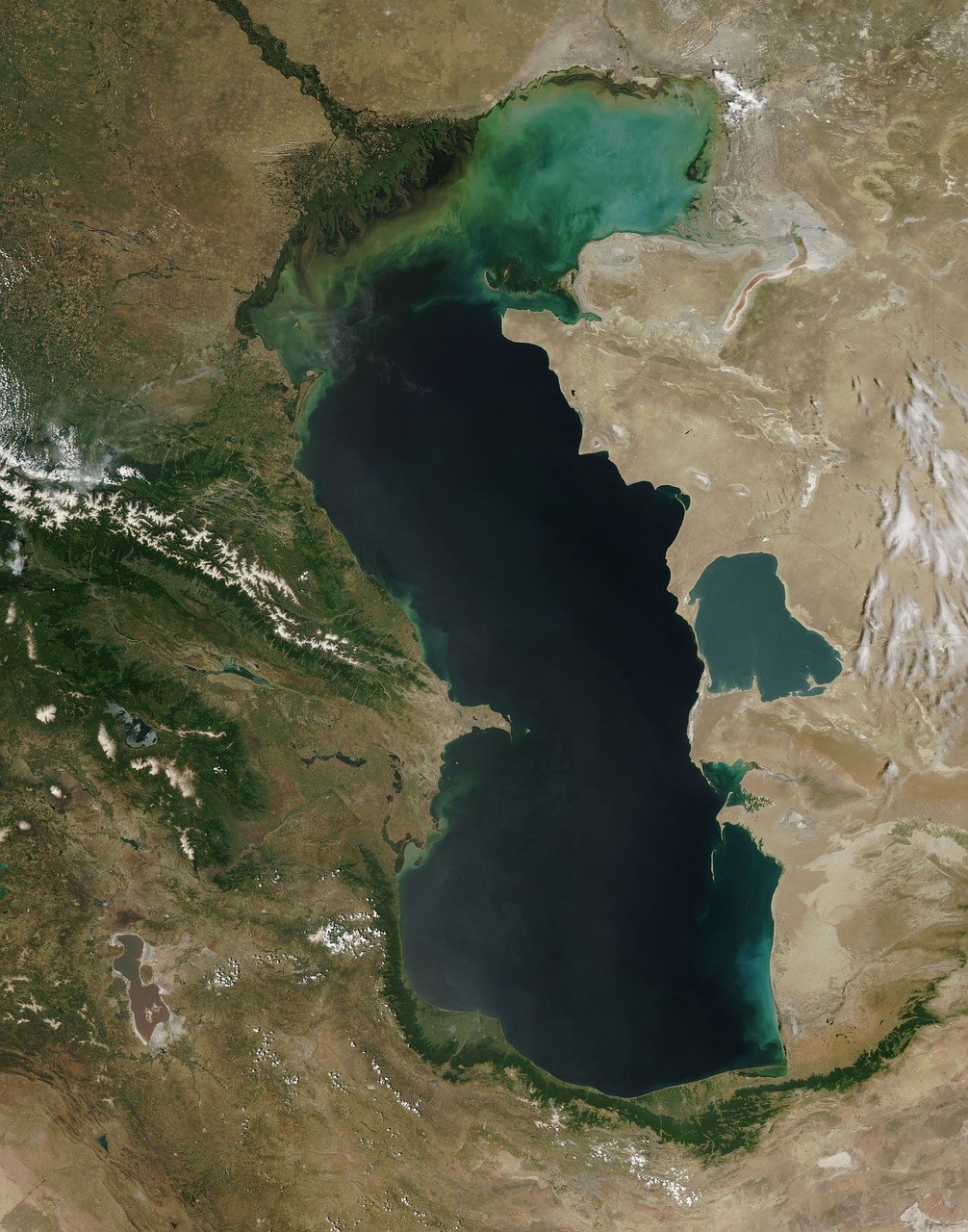For many years Russia’s Caspian Flotilla dominated this inland sea and was the region’s most important navy. That is evolving today as outside powers, including Turkey, expand their national navies and assume a larger role. The Caspian littoral states, previously focused on deploying their Coast Guards, are this summer constructing naval vessels in Kazakhstan capable of challenging the Russian Caspian Flotilla and enabling Turkey to project power throughout the region.
Located east of the Black Sea the often overlooked, large body of water contains a wealth of oil and gas reserves. It can be accessed only through canals connecting it to the Black Sea, Azov Sea, the Baltic, and Russia’s Volga River. No saltwater reaches its shores. While some describe it simply as the world’s largest lake, it contributes an estimated 10% to the GDP of the countries along its shores and accounts for about 40% of their exports. It also serves as a link between east and west with competing powers vying for dominance.
Central Asian governments view it as more valuable than a freshwater lake and now Turkey is planning a genuine navy in the Caspian Sea, according to Paul Goble of the Jamestown Foundation. He points out that Astana has signed agreements with Turkey to construct large naval vessels for Ankara in Kazakhstan. They will be capable of challenging Moscow’s regional influence once deployed in the Caspian. The deals inked this summer will enable the Turkish government to be the “naval contractor of first resort or even use the ships it builds under the flags of others to promote Turkish goals,” says Goble.
Kazakhstan and Turkmenistan were not allotted ships from the former Soviet Caspian fleet upon the dissolution of the USSR. As a result, Kazakhstan recently refocused its approach to sea corridors through shallow waters and is building additional coastal defenses. Today Astana has the largest naval inventory of any of the Caspian littorals states, including Russia. It developed a two-prong approach, both purchasing ships from foreign states and by increasing domestic production in cooperation with foreign shipbuilders.
The Russian publicationSovsekretno, on August 29, reported that Moscow officials will be paying closer attention to Kazakhstan’s naval plans this fall. The Kremlin suggests that Astana is deliberately allowing Turkey to project power beyond the Turkish world in a move aimed at placing it into the dominant geopolitical position once held by Russia. If this summer’s announced plans are fully carried out, Turkey could dominate the entire southern port of the post-Soviet space to the border with China. That could force Putin’s hand, compelling him to respond militarily or lose status in the Caspian Sea and in the nearby Central Asian states.
Five years ago, Moscow had the shipbuilding market cornered using bilateral agreements with the littoral states. The Central Asian states, including Kazakhstan, leaned toward the Russian Federation for shipbuilding, according to Goble. They used the provisions in the 2018 accord on the delimitation of the Caspian to end conflict among states in the region that had been on the rise since 1991. Despite Moscow’s efforts, the states later turned to South Korea and now Turkey for the construction of its ships.
According to at least one Russian analyst, “Ankara has found a way around the restrictions about the introduction of foreign navies on the Caspian,” says Goble. Yury Lyamin, a senior researcher at Moscow’s Center for Analysis of Strategies and Technologies, is quoted in Sovershenno Sekretno, as suggesting that “in order to control the oil and gas wealth of the Caspian Sea, and at the same time support their ally Azerbaijan, which is arguing for huge reserves of blue fuel with Turkmenistan, the Turks have come up with the idea of deploying their naval forces here under the flags of their kindred “Turkic” countries, Azerbaijan, and Kazakhstan.”
Despite the 2018 Convention prohibiting the use of non-Caspian armed forces, Baku and Astana are prepared to circumvent the restrictions imposed by Iran and Russia. Turkey is projecting power in the region and also aiding its closest ally, Azerbaijan, to ensure Ankara can access Caspian oil and gas. This will allow it to emerge potentially as the predominant geoeconomic power over all of Central Asia. One analyst suggests that Turkey has an additional goal of exerting its influence within the current borders of the Russian Federation as Ankara considers “…the representatives of peoples living in Russia, certain republics of the Caucasus, the Middle Volga, Kalmykia, parts of the Urals and Siberia” as properly within their sphere of influence.
The concept of a Turkish world is an old, but not a forgotten one in Ankara. An expanded and more powerful Turkish fleet can bypass Russian trade routes and limit Moscow’s ability to trade with the Indian Ocean states and Iran. The question analysts are asking this month is can the West fend off the Turkish challenge in Central Asia and, especially, inside Kazakhstan. For Russia, these developments represent yet another southeastern state than may leave Moscow’s fold. It could force Russia to align more closely with its competitive ally China and possibly Iran. A once backwater region is emerging as a new flashpoint for serious conflict and with far-reaching consequences for the great powers.
Daria Novak served in the U.S. State Department
Photo: Pixabay
